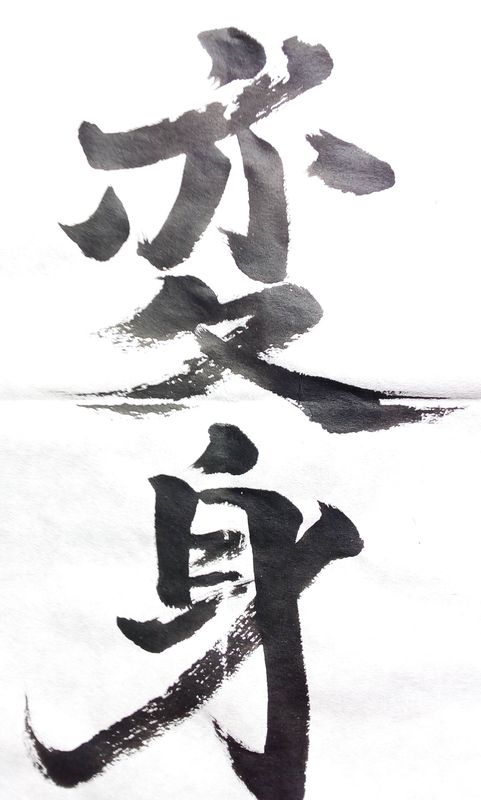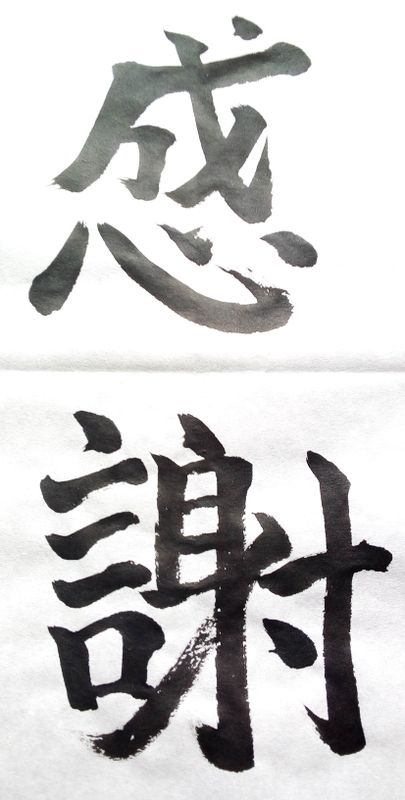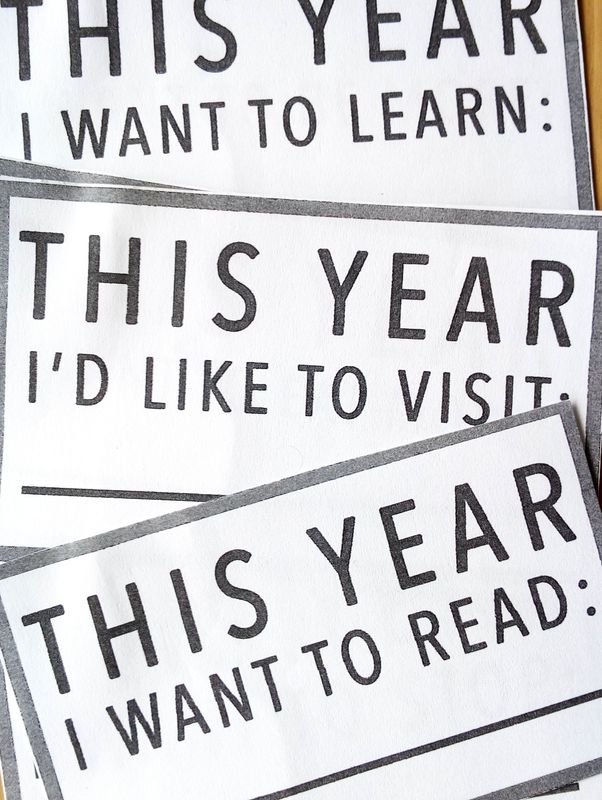Jan 13, 2019
New Year Resolutions 2019
During the New Year Holiday, I had two weeks off but we didn't even go anywhere. I thought I would relax a lot and instead I worked on professional development every day!

I heard some positive words often starting around the end of last year, both in English and in Japanese. The two that stood out to me the most were transform and gratitude. I decided to transform my life and be grateful in my every day life in 2019. This was confirmed all around me in the audio books I listened to, the people I talked to, even my students brought up these words.
For several years I studied shodo and I love it, but I had a break for over three years. I decided it's important to me so I'm gonna study shodo again, along with studying reading and writing in Japanese. I have one of those 'beautiful handwriting' books you can find everywhere and I've been practicing my writing every day. It's so useful for life in Japan to be able to read and write, even at my elementary school student level. After writing inoshishi and gashou at the end of 2018, for my kakizome, I wrote (transform) henshin and (gratitude) kansha.

In the first week back at work, I shared about the American tradition of making New Year Resolutions, and how they are rarely serious. The reason I never made New Year Resolutions is that they are often silly things like declaring to go to the gym, then forgetting and giving up less than a month later. This can be successful when we make a decision and a plan to put it into action, although I don't think most people take these steps and instead it's all talk.
In Japan, there isn't a common tradition to make New Year Resolutions, but if we translate it, it's 新年の抱負 'shinnen no houfu.' I like this word houfu because it means ambition, but it sounds the same as this houfu, 豊富 which means abundance.
If we are ambitious, we can have abundance.

I downloaded some New Year cards a couple of years ago and like this exercise in teaching students about making New Year Resolutions.
I teach them that, 'This year' can be changed to, 'In 2019,' and that the part, 'I want to' can be changed to, 'I wanna, I will, I'd like to, I'm gonna,' etc. Sometimes we make our own verbs and create our own resolutions after filling in the blanks.
There are lots of fun resolutions I heard like, 'I'm gonna make foreign friends,' 'I'm gonna get a hot body' or 'I'm gonna get a girlfriend,' so I like to challenge my students even further.
HOW are you gonna do that? Where are you gonna meet her? What's your plan for action? I think this is where most resolutions fail, and I don't want their resolutions to result in quickly giving up like the American tradition. In Japanese, they will call this giving up quickly, 三日坊主 mikka bouzu, or literally a priest for three days, haha. With this phrase I can easily explain the result of resolutions with no clear plan for action.
The other important piece of this puzzle is the WHY. I'm learning to ask myself why I chose my goal or resolution, and focusing on that why as my motivation.
Did you make a New Year Resolution this year? Did you think about the how and why for choosing it?
Mine are:
In 2019, I will work and earn a lot more than in 2018. (I have to earn more to qualify for my visa and live comfortably here in Japan.)
I'll go to Yakushima and visit the US in 2019. (For fun and to visit friends and family.)
I will practice writing in Japanese every day. (I wanna be good at shodo and be able to read and write in Japanese.)



0 Comments